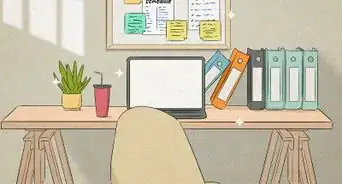This article was co-authored by Sharon Lee. Sharon Lee is a Success Strategist and the Owner of Fearless Pursuits. With over seven years of experience, she specializes in helping others gain clarity on their goals, build confidence, and remain accountable towards their goals. Sharon offers advice to others through life coaching, career coaching, and small business coaching. Sharon holds a Strategic Intervention Coach Certification from Robbins-Madanes Training and has additional training from Erickson Coaching International.
There are 12 references cited in this article, which can be found at the bottom of the page.
wikiHow marks an article as reader-approved once it receives enough positive feedback. This article received 26 testimonials and 88% of readers who voted found it helpful, earning it our reader-approved status.
This article has been viewed 1,972,009 times.
If you're a chronic procrastinator, you’re familiar with the pain and stress that goes hand in hand with leaving things to the last minute. Even if you want to accomplish or finish a task, you’re likely having trouble getting started in the first place! There are several strategies that can help you stop procrastinating right now (so read fast!), as well as lifestyle changes you can make to avoid future procrastination.
Steps
Expert Q&A
-
QuestionWhat is the main cause of procrastination?
 Sharon LeeSharon Lee is a Success Strategist and the Owner of Fearless Pursuits. With over seven years of experience, she specializes in helping others gain clarity on their goals, build confidence, and remain accountable towards their goals. Sharon offers advice to others through life coaching, career coaching, and small business coaching. Sharon holds a Strategic Intervention Coach Certification from Robbins-Madanes Training and has additional training from Erickson Coaching International.
Sharon LeeSharon Lee is a Success Strategist and the Owner of Fearless Pursuits. With over seven years of experience, she specializes in helping others gain clarity on their goals, build confidence, and remain accountable towards their goals. Sharon offers advice to others through life coaching, career coaching, and small business coaching. Sharon holds a Strategic Intervention Coach Certification from Robbins-Madanes Training and has additional training from Erickson Coaching International.
Success Strategist Procrastination comes out of the obstacles that you fear. If your pain for going through a certain process is greater than the ultimate pleasure you'll get out of it, you won't end up doing it.
Procrastination comes out of the obstacles that you fear. If your pain for going through a certain process is greater than the ultimate pleasure you'll get out of it, you won't end up doing it. -
QuestionHow can I stop procrastinating if I have trouble with distractions?
 Trudi Griffin, LPC, MSTrudi Griffin is a Licensed Professional Counselor in Wisconsin specializing in Addictions and Mental Health. She provides therapy to people who struggle with addictions, mental health, and trauma in community health settings and private practice. She received her MS in Clinical Mental Health Counseling from Marquette University in 2011.
Trudi Griffin, LPC, MSTrudi Griffin is a Licensed Professional Counselor in Wisconsin specializing in Addictions and Mental Health. She provides therapy to people who struggle with addictions, mental health, and trauma in community health settings and private practice. She received her MS in Clinical Mental Health Counseling from Marquette University in 2011.
Professional Counselor Some of the techniques above will help, such as doing your work in environments without distractions and using timers to hyperfocus for 20 minutes at a time.
Some of the techniques above will help, such as doing your work in environments without distractions and using timers to hyperfocus for 20 minutes at a time. -
QuestionHow can I stop procrastinating when I am always stressed and tired?
 Trudi Griffin, LPC, MSTrudi Griffin is a Licensed Professional Counselor in Wisconsin specializing in Addictions and Mental Health. She provides therapy to people who struggle with addictions, mental health, and trauma in community health settings and private practice. She received her MS in Clinical Mental Health Counseling from Marquette University in 2011.
Trudi Griffin, LPC, MSTrudi Griffin is a Licensed Professional Counselor in Wisconsin specializing in Addictions and Mental Health. She provides therapy to people who struggle with addictions, mental health, and trauma in community health settings and private practice. She received her MS in Clinical Mental Health Counseling from Marquette University in 2011.
Professional Counselor Identifying and fixing the source of stress may be the first thing you need to do to help the procrastination.
Identifying and fixing the source of stress may be the first thing you need to do to help the procrastination.
Warnings
- Avoid over-rewarding yourself. If you put too many blocks of “reward time” into your daily schedule, you’re not going get things done. Stick with small end-of-the-day rewards, and save the big celebrations for your free days.⧼thumbs_response⧽
References
- ↑ https://www.washingtonpost.com/news/wonk/wp/2016/04/27/why-you-cant-help-read-this-article-about-procrastination-instead-of-doing-your-job/?utm_term=.b97d4925d499
- ↑ https://www.inc.com/chris-winfield/how-to-stop-procrastinating-in-3-minutes-with-one-simple-question.html
- ↑ Sharon Lee. Success Strategist. Expert Interview. 2 December 2021.
- ↑ https://www.psychologicalscience.org/observer/why-wait-the-science-behind-procrastination#.WVK-49Pytok
- ↑ https://francescocirillo.com/pages/pomodoro-technique
- ↑ Sharon Lee. Success Strategist. Expert Interview. 2 December 2021.
- ↑ https://www.psychologytoday.com/articles/201505/the-voice-reason
- ↑ http://writingcenter.unc.edu/handouts/procrastination/
- ↑ https://www.forbes.com/sites/margiewarrell/2013/03/25/why-you-procrastinate-and-how-to-stop-it-now/#534f88081837
- ↑ http://writingcenter.unc.edu/handouts/procrastination/
- ↑ http://www.pcworld.com/article/2094846/read-this-now-7-clever-mobile-apps-to-conquer-procrastination.html
- ↑ Sharon Lee. Success Strategist. Expert Interview. 2 December 2021.
- ↑ https://zapier.com/blog/stay-focused-avoid-distractions/
- ↑ https://www.ameritech.edu/blog/tips-make-environment-best-study-space/
- ↑ https://www.ameritech.edu/blog/tips-make-environment-best-study-space/
- ↑ Sharon Lee. Success Strategist. Expert Interview. 2 December 2021.
- ↑ https://www.psychologicalscience.org/observer/why-wait-the-science-behind-procrastination#.WVK-49Pytok
- ↑ https://jamesclear.com/eisenhower-box
About This Article
To stop procrastinating, turn off your phone and play white noise or music without lyrics to help you focus. Break your task into small chunks that you can tackle one by one and work hard for 15-minute intervals, giving yourself short breaks in between to help you stay on task. Aim to finish the task, not make it perfect—you can always fix it when you’re done. Give yourself a quick pep talk to get you going and promise yourself a reward, like a sweet treat or funny video, when you’re all done. If you want to learn how to make a distraction-free space where you can focus on work, keep reading the article!
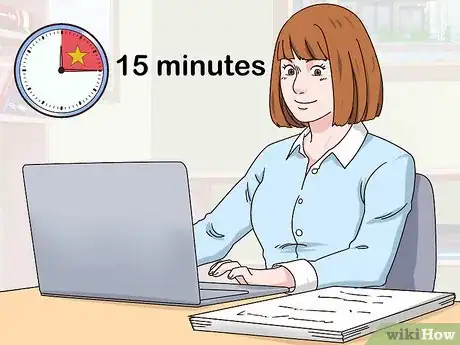
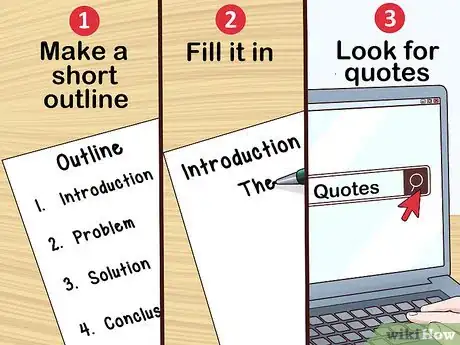

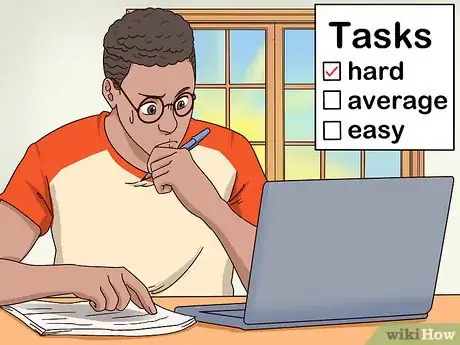

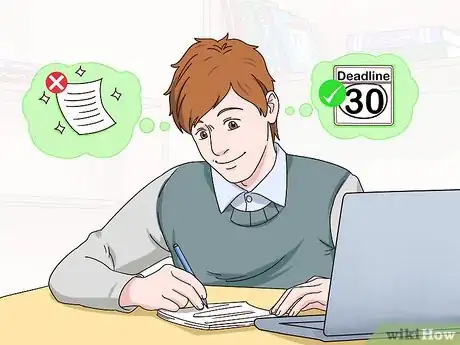
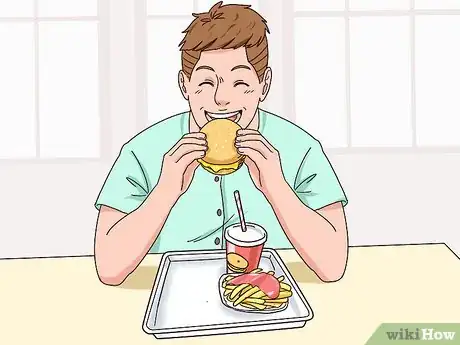
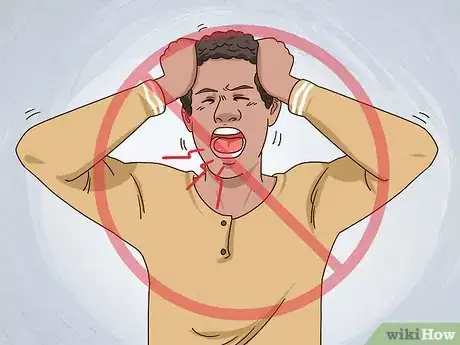

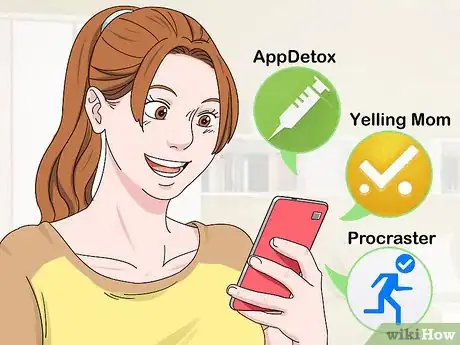
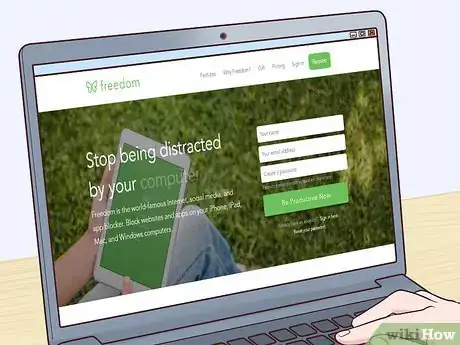
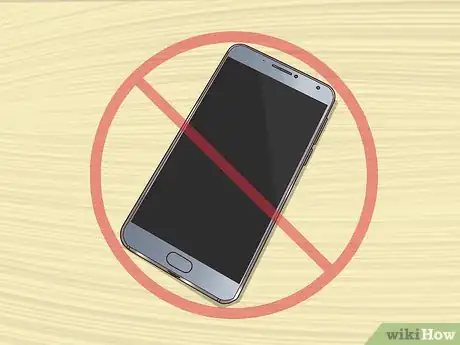

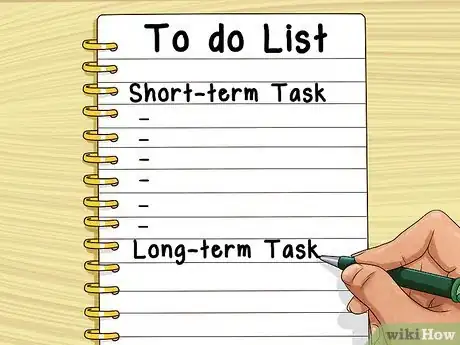
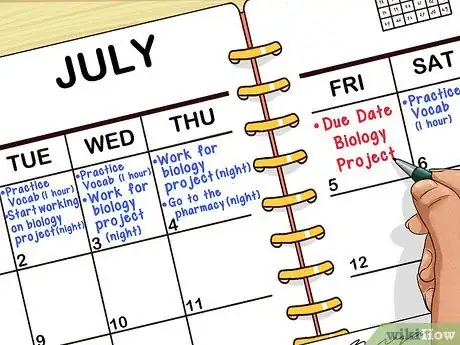
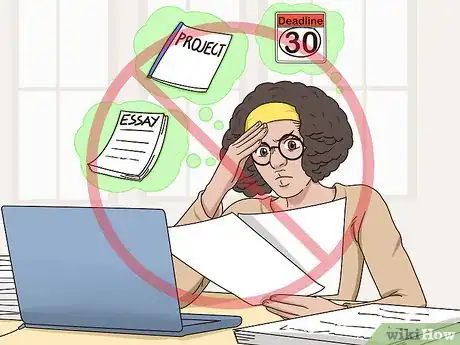


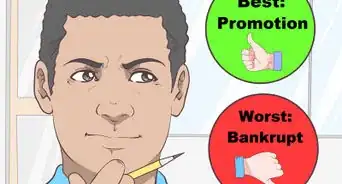
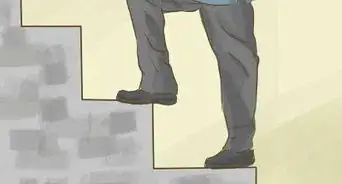
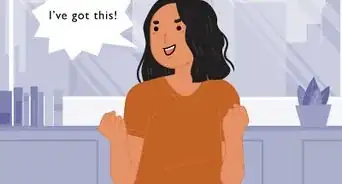



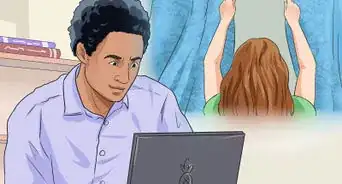
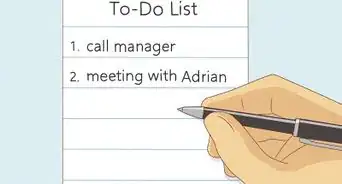


-Step-8.webp)
